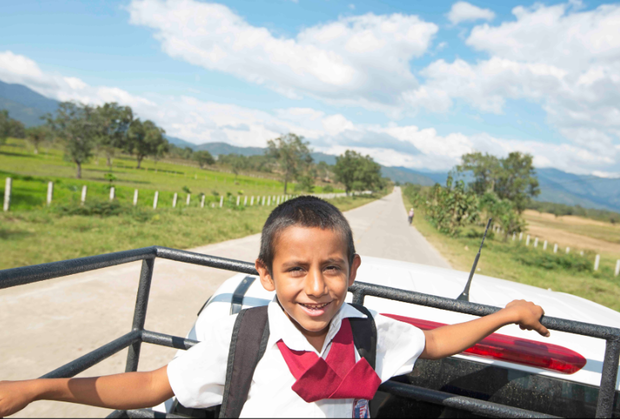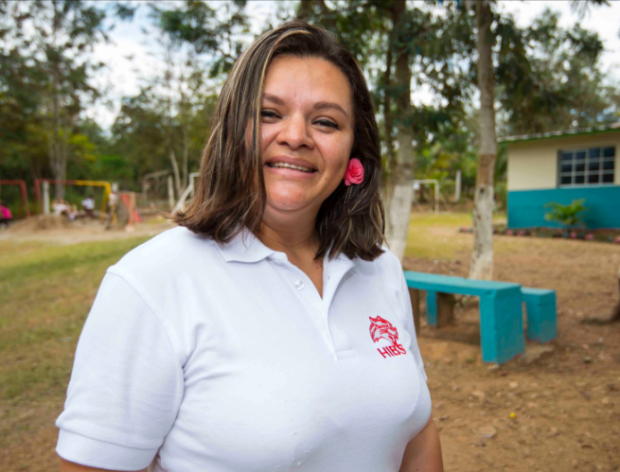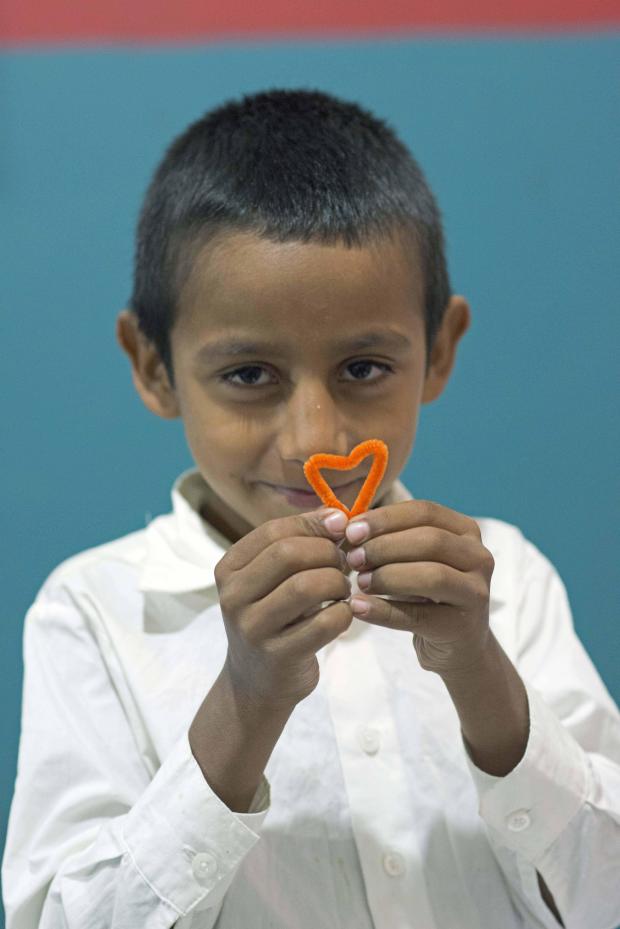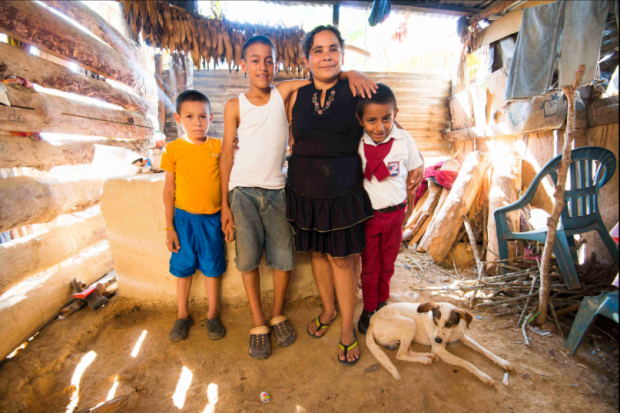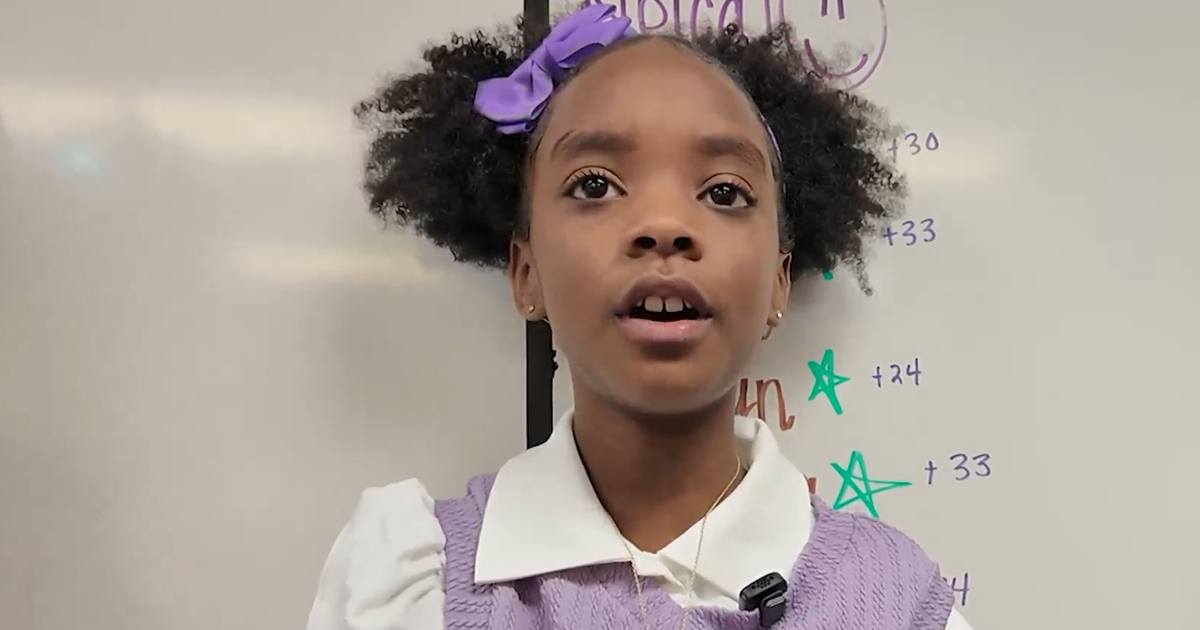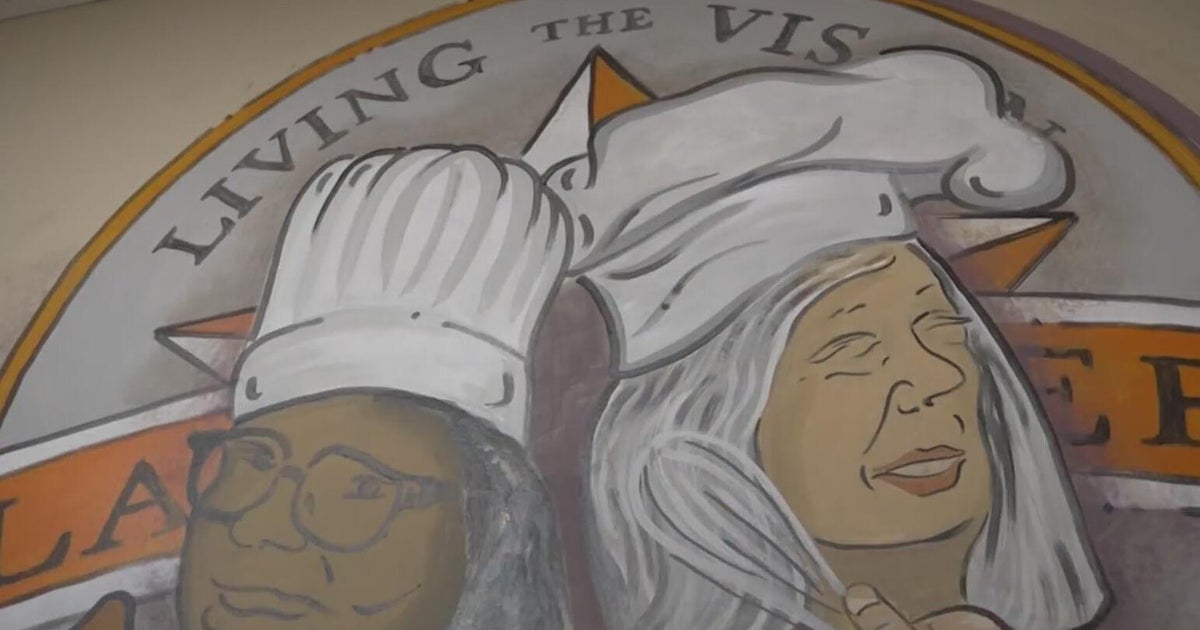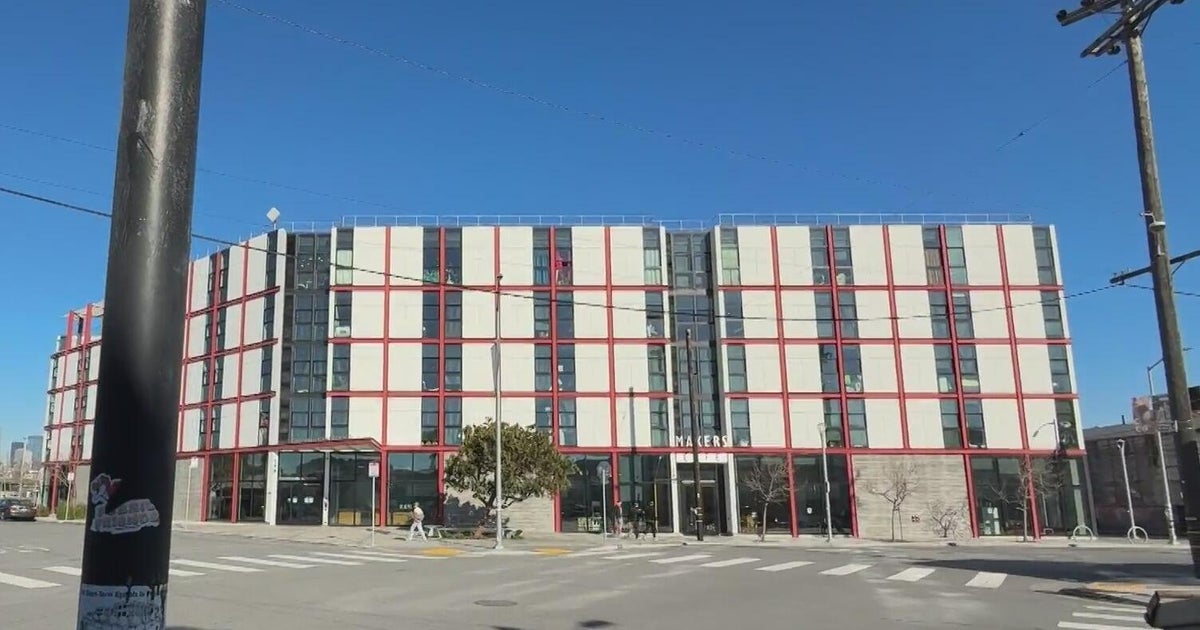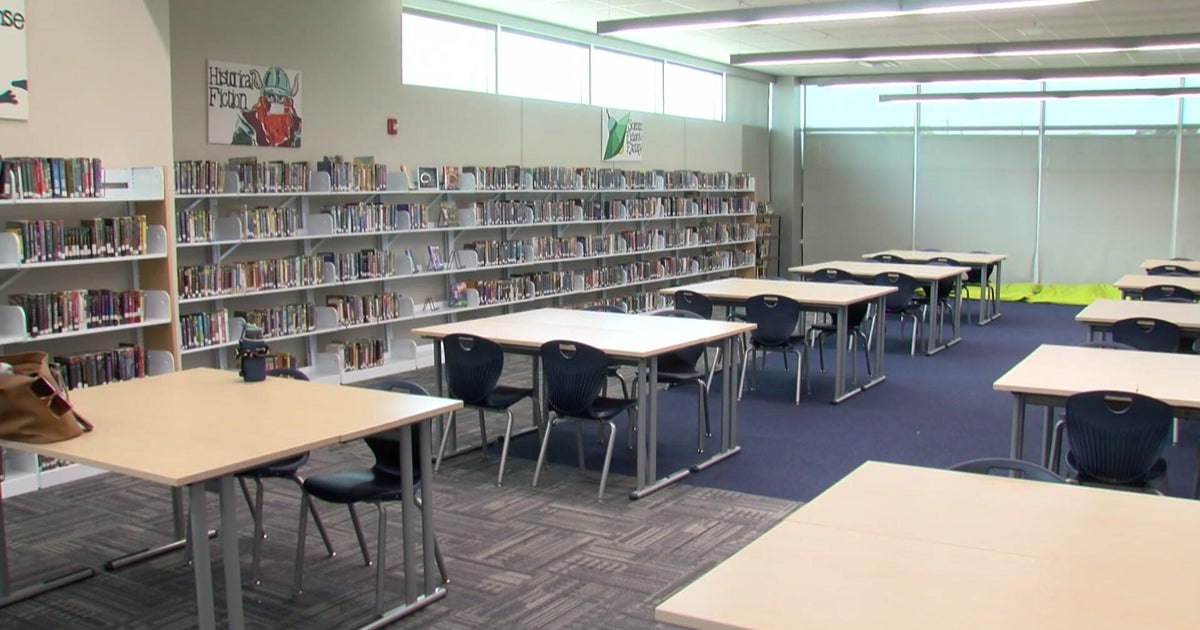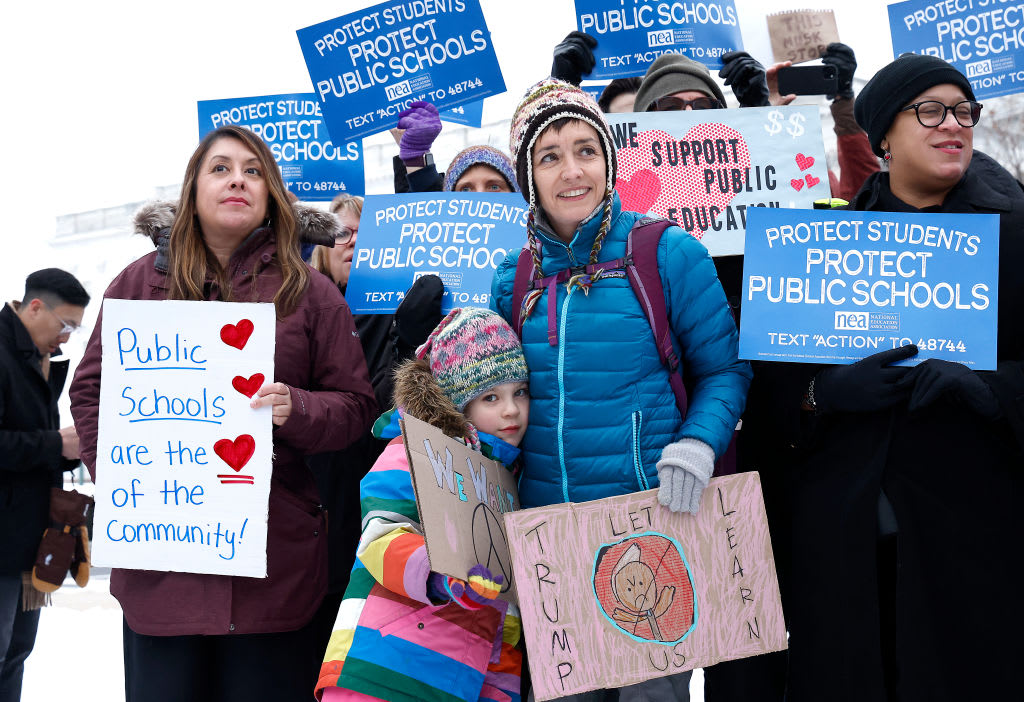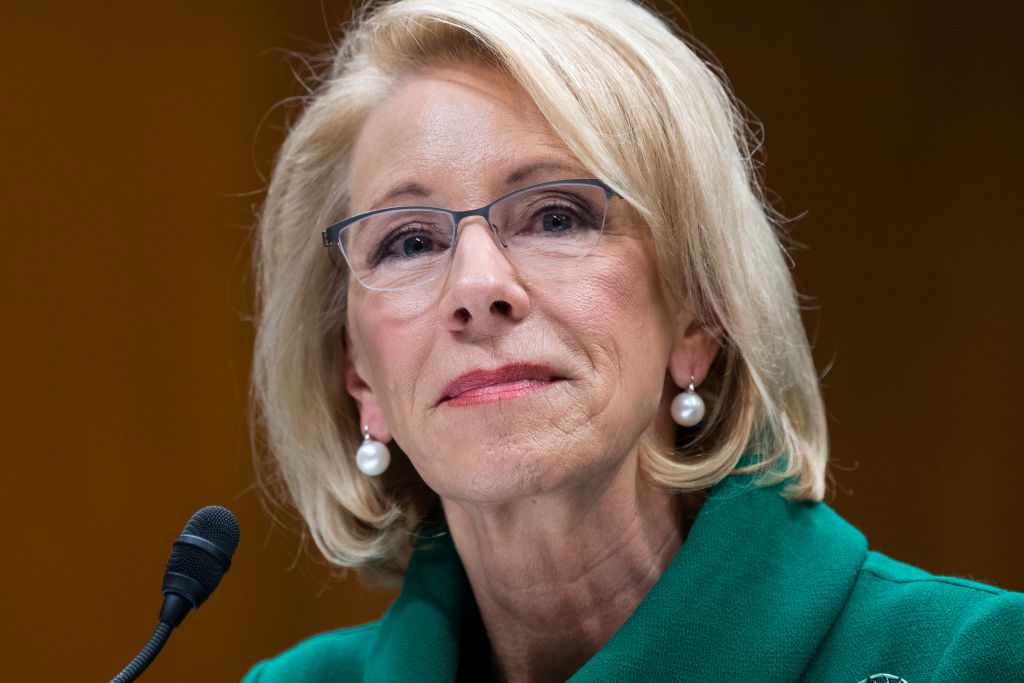Private school in Honduras aims to lift students out of poverty
Quimistán, Honduras -- Leonardo's home in this rural Honduran town is simple. The floor is dirt; the roof, tin. And sunlight and rain seep through the walls with impunity.
But Leonardo is one of the lucky ones.
Each morning, the meek, serious third-grader dons a tidy maroon-and-white uniform and makes a five-mile trek to a private school, where a small group of Honduran teachers and their American backers are betting that an education can lift Leonardo and his classmates from poverty.
Students at the Honduran Independence Bilingual School, or HIBS, study reading, math and English, not to prepare them for futures in the U.S., but rather in the hope that they will stay in their homeland and turn this poor country around.
The concept that children who learn English will stay here to help others is unproven. Unless you look at Vivian Claros, who founded HIBS. She learned English and became a teacher to escape poverty.
And the notion that Leonardo is lucky might seem outlandish, too, until one realizes all the stars that needed to align before he was admitted to the school. In Leonardo's case, it took the love of his family, a chance meeting on a Honduran bus, and a fire in a faraway city in America.
The fire occurred nearly 19 year ago. It started in the basement, in a defective radio, and spread through the Arlington, Virginia, home of Glen and Karen Evans, who were away for the weekend. No one was hurt.
Glen was pastor of the nearby Calvary United Methodist Church; his wife Karen, an executive at an airline trade association. Known for helping others in the community, the couple now had to depend on the kindnesses of others. They moved into a neighbor's house while rebuilding their home.
During reconstruction, Glen Evans befriended the laborers. Although he didn't speak Spanish, he learned they were from Honduras, and had become totally disconnected from their families. Honduras has no national mail service, and their relatives had no phones.
Evans worried about them. Family disconnection, he knew from his ministry, often led to alcohol and drug abuse and other behaviors that rip families apart. So Evans hatched a plan. The pastor would borrow a video camera, tape messages from the laborers and personally deliver the messages to their homes in Honduras.
When he began recording, he noticed an odd pattern. As the men began speaking, they would lift their shirts, revealing their torsos. Later he learned why.
"They were saying, 'Look mom, I don't have any knife wounds. I don't have any bullet holes,'" Evans said. "And that just gave me some insight, what's in the mindset of people who have made this illegal crossing."
Evans kept his promise, using a vacation week to travel to six remote towns to deliver the messages. He was struck by the poverty in Honduras, the second poorest country in Central America.
It was "unimaginable," he said. "I have been involved with the poor all of my adult life and I'd never seen poverty like I was seeing in Honduras. It really touched me."
Glen and Karen Evans set out to help the people of Honduras. From the beginning, they saw little value in handouts, believing any benefit would be short-lived. Instead, they decided to help Hondurans help themselves, encouraging education and free enterprise, which they believed would be self-sustaining.
They also decided to rely on volunteers, with no paid staff, including themselves. Glen Evans would survive on his pension, Social Security and his wife's salary.
Their new charity — Art For Humanity — initially paid Hondurans for arts and crafts to be sold in the U.S. But over the years, it has evolved and expanded into a group of enterprises both big and small.
The Leadership Center, a small tuition-free college near the town of Zambrano, provides leadership training for young women. The Honduras Independence Bilingual School (HIBS), which Leonardo attends, infuses English-language instruction into a traditional elementary school education. Meanwhile, they've helped Hondurans establish small coffee farms, bike repair and sewing businesses, and nail salons and paint stores.
"It's happened in very natural, organic kind of ways," Evans said. "We just kind of puzzled and stumbled our way along and all of our big projects we've begun here … they also happen circumstantially."
The HIBS school has roots in a chance meeting early on. Evans met a young woman named Vivian Claros on a Honduran bus. She spoke no English, and Evans spoke so little Spanish that he carried flash cards to communicate. Claros, who was 21 at the time, told Evans she was from Quimistán.
Evans sensed the young woman had ambition. Claros didn't know what to make of the tall American.
"The first time I was afraid. I would not trust him," she said, laughing. "I was so shy. But later I wrote him and he wrote me emails and then we developed a friendship."
Evans helped Claros start a shoe business and helped her continue her education.
Years later, with help from Art for Humanity, Claros started HIBS, her own private elementary school.
HIBS opened in 2006 with some 25 students in pre-school, first and second grades. Today there are about 125 students with plans to increase both the number of students, and the number of grades.
Students come from all economic backgrounds. About 12 students are "Leonardos," who are on full scholarships; another 50 with partial scholarships, paid by Art for Humanity donors.
The school is modest, with cinder block construction and a corrugated steel roof. But the classrooms are colorful and the atmosphere is lively.
The students arrive in fresh, private-school uniforms. The girls squeal with delight, and hug each other in the morning. The younger children play on the seesaws and sliding boards. Older ones organize soccer matches at every opportunity.
The teachers and staff wears shirts emblazoned with the school's motto: "Educating the Future Leaders of Honduras."
When I saw Leonardo the morning after visiting his home in February, his uniform made it impossible to distinguish him from students from wealthier neighborhoods. That alone gives Claros hope. Childhood friends are friends for life.
Little Leonardo, his neighborhood squalor notwithstanding, is one of the lucky ones. Claros accepted the child into the HIBS school at the request of a friend, who knew his mom. And a young American couple, both Art for Humanity volunteers, agreed to pay his $60-a-month tuition. The Americans are Daniel Reynolds, a nuclear power plant operator who liked Evans' entrepreneurial bent, and his wife Danielle, a school teacher who loved the charity's emphasis on education.
Though Danielle is still paying off her own college loan, she doesn't flinch at the thought of paying for two kids in Honduras.
"It's kind of ridiculous not to do something," Danielle said. "We have been so blessed."
It is hard to gauge the success or failure of Art for Humanity projects. But Evans doesn't believe his young charges are among those fleeing Honduras for a life in the U.S. The schools and businesses are giving families something in short supply in Honduras – hope.
He can point to some "successes," including a student who recently graduated from law school and another currently in medical school. Both want to help poor children, Evans said.
"We're in for the long haul. We're not for what some people call hit-and-run -- you know, you stop, you hand out some sandwiches and then you're gone," said Evans. "If we get involved, we're involved for the long run."
As for Claros, she has big hopes for Leonardo. Two days after Valentine's Day, I sat with her in the HIBS school courtyard. Recess was over, students had returned to their classrooms, and the chaos had quieted. I reminded her of the school's slogan: "Educating the Future Leaders of Honduras."
Is it realistic to believe he Leonardo can become a future leader of his country? I asked. Isn't it enough to hope that he someday lives in a house with a door? Does Claros really think he can become a leader of Honduras?
"Yesssss, of course, of course!" she said, delighting in the notion. "And then I can die in peace," she said, laughing.
But then the enormity of the challenge seemed to dawn on her — the consuming poverty, the deprivations, the plight of a pint-sized child. And Claros suddenly became serious.
"Because," she said, getting teary, "I feel I was like him. And nobody (could) see I can be a leader. Glen had to come from the states and teach me, and let me know that I can be a leader. Until he (did) that, there were no opportunities for me."
"So I want (Leonardo) to become the same, or more, much more."
Vivian tried to hold back tears, but it was a losing fight. The thought was overwhelming. Leonardo, the meek third grader, the kid in the dirt-floor shack.
Leonardo — a leader of Honduras. It almost hurts to imagine.
But Vivian imagines it.
"That's what I want," she said.
